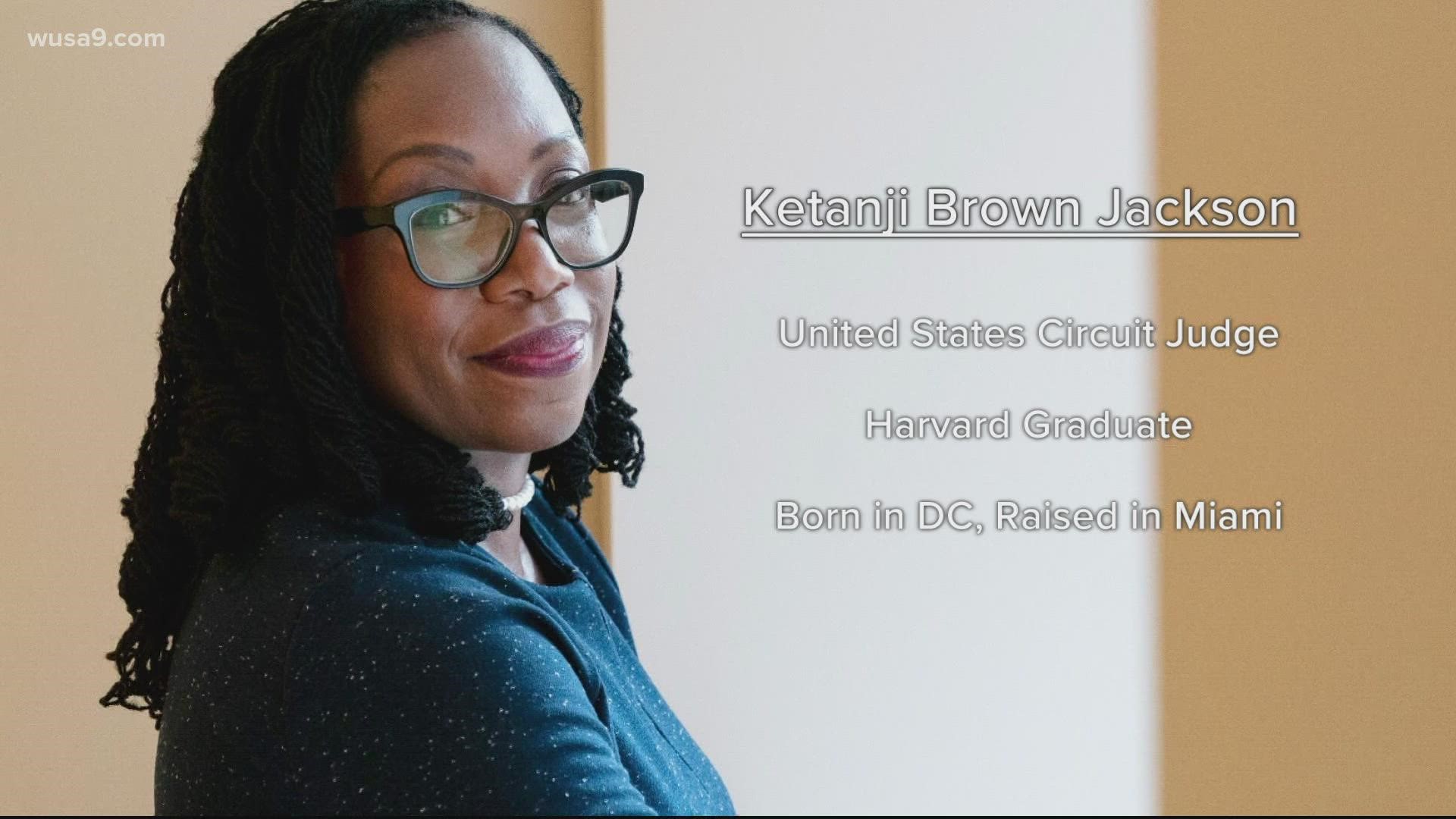WASHINGTON — The Senate Judiciary Committee said Wednesday that confirmation hearings for Supreme Court nominee Ketanji Brown Jackson will begin March 21, keeping the Senate on track for a possible final vote next month.
Sen. Dick Durbin, the committee chairman, announced the hearing schedule on Wednesday as Jackson was holding her first meetings with senators on Capitol Hill. Jackson met in the morning with Senate Majority Leader Chuck Schumer, D-N.Y., and Senate Republican leader Mitch McConnell of Kentucky. She planned to see Durbin and the committee’s top Republican, Sen. Chuck Grassley of Iowa, in the afternoon.
As is tradition, the hearings will last four days, with opening statements March 21 and testimony and questioning the next two days. The fourth day will include testimony from outside witnesses.
If confirmed, Jackson would be the first Black woman to serve as a justice in the court’s 200-plus year history. Breyer has said he won’t leave the bench until this summer, when the court’s session is over, but Democrats are still moving quickly, taking no chances in case there is any shift in a 50-50 Senate where Vice President Kamala Harris provides the deciding vote.
After Schumer and Jackson sat down in the Capitol to talk, Schumer said the Senate will move the nomination “fairly but expeditiously.”
He gushed about Jackson to reporters, saying she is “an optimistic person” who tries to see all sides of an issue. He said they spoke some about her judicial philosophy but mostly about her life and her family.
“You can see it when you meet her that she has real empathy,” Schumer said. “I think it’s very important in a judge because you’re having two sides clashing over whatever the issue is, to be able to empathize and walk in the other person’s shoes.”
Biden spoke about Jackson and honored Breyer in his State of the Union speech on Tuesday evening, calling the nominee “one of our nation’s top legal minds, who will continue Justice Breyer’s legacy of excellence.”
Jackson, 51, was confirmed last year as an appeals court judge in Washington after eight years on the district court. She once worked as one of Breyer’s law clerks and served on the U.S. Sentencing Commission, the agency that develops federal sentencing policy.
Biden said she was a “consensus builder,” noting her work as a private litigator and as a federal public defender, and that she comes from a family of public school educators and police officers.
In a 149-page questionnaire Jackson returned to the Senate committee this week, she disclosed that she was first contacted by the White House Jan. 30, three days after Breyer announced his retirement. Jackson, a judge on the U.S. Court of Appeals for the District of Columbia Circuit, had long been seen as Biden’s top candidate for the job, which he had promised would go to a Black woman.
Jackson met with Harris in a video call on Feb. 11 and then interviewed with Biden at the White House on Feb. 14, she says in the questionnaire. Biden called and offered her the nomination on Feb. 24, a day before he made his decision public.
The questionnaire provides the committee with a record of every job she has held and the decisions she has made in her nine years as a federal judge, as well as any recusals and potential conflicts of interest. Senators and staff will be able to vet that information much more quickly than they would have for other candidates since they just considered her last year for her current position.
Jackson's list of her most significant cases contains only one new entry from the appeals court, describing an opinion she wrote for a unanimous three-judge panel that came out in favor of labor unions.
Schumer and Durbin are still hoping to win some GOP votes for her confirmation, even though many Republicans have expressed skepticism that Jackson is too liberal. Sens. Susan Collins of Maine, Lisa Murkowski of Alaska and Lindsey Graham of South Carolina were the only Republicans who voted to confirm Jackson to the appeals court last year.
While Collins has appeared open to voting for Jackson again, Murkowski said in a statement last week that her previous vote did not mean she would be supportive this time.
Graham had pushed for a different candidate from his home state, federal Judge J. Michelle Childs, and expressed disappointment that she was not Biden’s pick.
Schumer said after his meeting with Jackson that she is someone who should appeal to all sides, noting her past as a public defender and support from some police groups, for example.
He said he hopes that when Republicans meet her, “they will be as wowed as I was. She's an amazing person."

